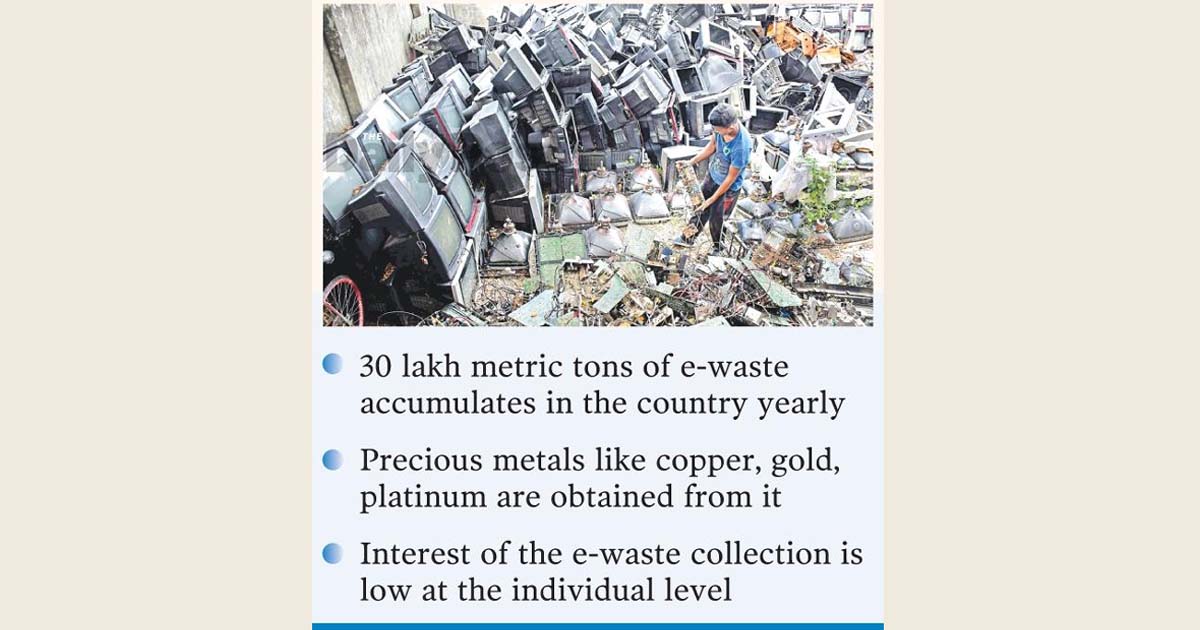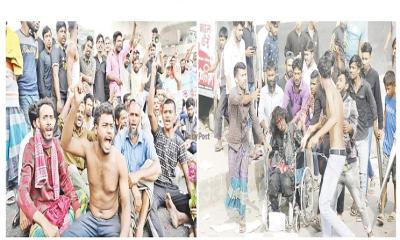Old and damaged mobile phone sets, computers, laptops, useless and unused electronics are worth throwing away, but they are not discarded at all. Precious metals such as copper, zinc, silver, gold, platinum or palladium are hidden in these e-wastes. Even the plastic obtained from these e-wastes is being sold at a great price. According to market sources, the material obtained from e-waste worth Tk 100 crore is sold in the country every month, which amounts to more than Tk 1,200 crore annually.
Although e-waste collection has started institutionally, the response among mobile phone or digital device users is low. If something is damaged or not repairable, most people do not know where to dispose of it. As a result, they are placed in the corners of the house, under the bed, on the false roof or in the attic. In this way, its spread is increasing.
The concerned people said that individual level users are still not aware. It damages the environment, even the little one at home. And that is why those who are involved in recycling said that the response to e-waste collection from the individual level is still low. Most of what is happening is at the corporate level. Apart from this, the amount of e-waste being collected in other ways is very low.
E-waste includes expired or damaged mobile phones, computers, printers, televisions, air conditioners, electric lamps, various types of electronic, etc. They contain metals and chemicals such as lead, mercury, lead oxide, cadmium.
Bangladesh ICT Journalist Forum (BIJF) organized a roundtable titled 'Bangladesh at carbon risk of e-waste: causes and way out' in June. Speakers at the discussion said that 30 lakh metric tons of e-waste is accumulated in the country every year, of which only 10 tons of e-waste is being created in smart devices. About 1.7 lakh tonnes of e-waste is being generated from 2 lakh 96 thousand 302 units of damaged televisions. More than 2.5 million tons are coming from the ship breaking industry. It is a matter of concern that this waste is increasing at a rate of 30 percent in the turn of the year.
Saidur Rahman Shahin, managing director of Azizu Recycling and E-Waste Company Limited, said we do not get even 20 percent of the mobile phones wasted every year in the country. Users either use it after repair, or leave it at home. As a result, the amount of e-waste that is created, the companies do not get it completely. E-waste management, a mobile or other device is first separated. Then plastic, metal, IC are separated from it. After separating the plastic, the chips are made and sold to traders. And copper, zinc, silver are obtained by separating metal. Precious metals like gold, platinum, palladium, rhodium are also available. Precious metals depend on grade-based circuit boards. That's why this market is not a waste at all. Rather, it is possible to earn crores.
Mohammad Mesbah Uddin, joint secretary of Bangladesh Mobile Phone Importers Association (BMPIA), said on an average 35 million mobile phones are sold in the country every year. The life cycle of a mobile phone is 3 to 4 years. As a result, about 3 crore mobile sets are being turned into e-waste every year in the country.
There are allegations that during mobile recycling, some companies separate ICs (integrated circuits) and send them to China. There they are repaired in the field. The old IC is used in the non-brand mobile sets that come to the country from China. These mobile phones are not very durable. But no one admitted it. Although this issue has been going on for a long time.
ARS





-20231207124758.jpeg)




